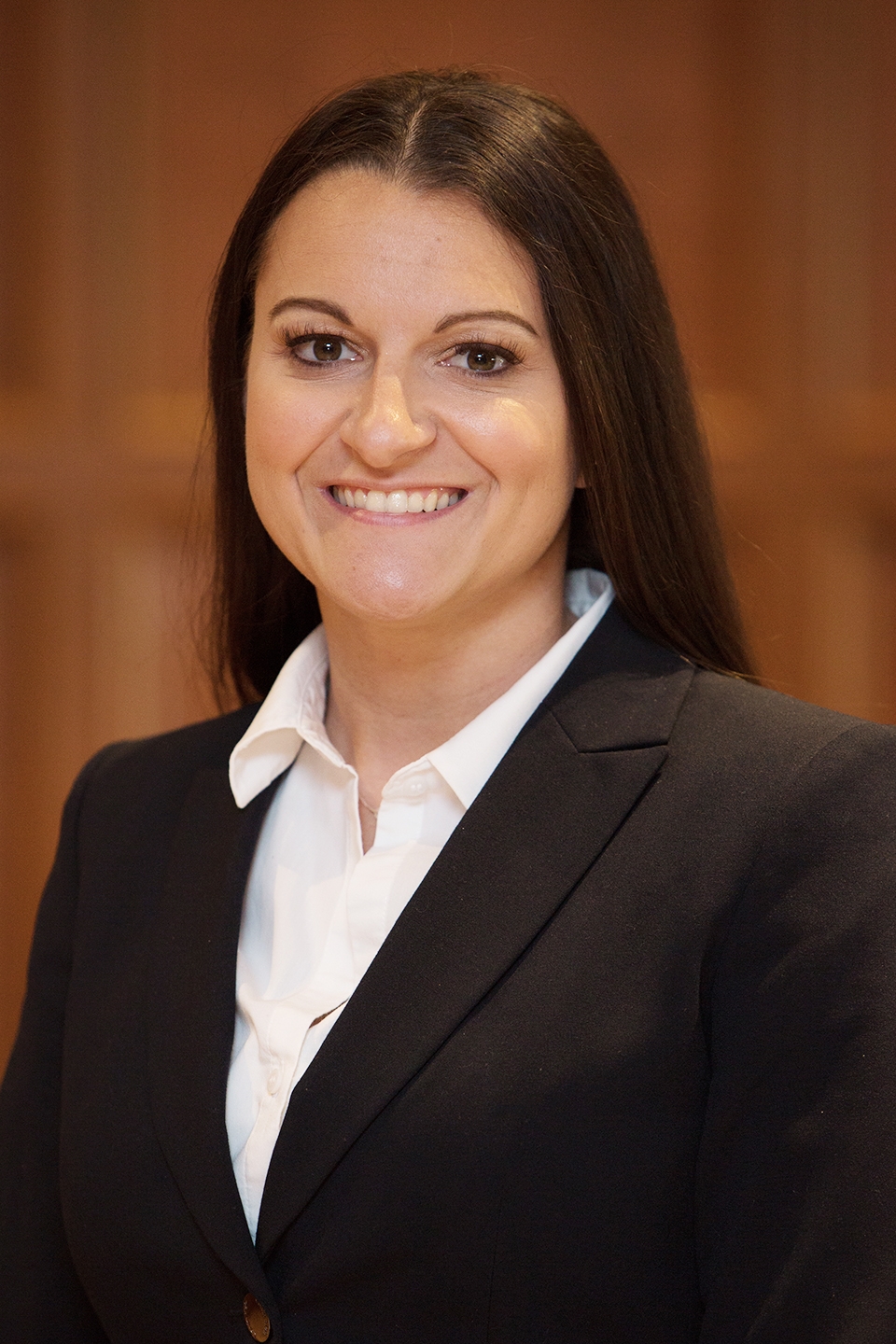
Amanda Perry is headed into the Navy JAG Corps after she graduates from Duquesne’s law school. The JAG Corps handles all legal matters for Navy sailors.

Amanda Perry is headed into the Navy JAG Corps after she graduates from Duquesne’s law school. The JAG Corps handles all legal matters for Navy sailors.
Raymond Arke | News Editor
01/11/18
While “jag-off” is a common Western Pennsylvania insult, one Duquesne law student is pursuing a career where JAG would be her title, a joke she hears quite often.
Amanda Perry, a fourth-year Duquesne law evening student, was recently accepted into the Navy Judge Advocate General (JAG) Corps.
Each branch of the military has its own JAG Corps, with the officers handling any legal issues that occur within that branch. This type of law isn’t always the same as in the civilian world, Perry explained.
“Military law is separate from civilian law. The JAG Corps exclusively practices under the Uniformed Code of Military Justice (UCMJ),” she said.
Perry described the UCMJ as “a combination of criminal law and … how to be a better soldier. [Offenses] in the civilian world where you’re like, ‘That’s a crime?’ But in the military world, it’s a big deal.”
She has always been interested in doing public interest-based law that doesn’t involve working for a firm. This desire was inspired by some of her previous work.
“I spent a year up in the public defender’s office in Lawrence County [Pennsylvania]. There’s a sense of community and teamwork that you don’t get in private practice. It’s a very different world and a very different feeling,” Perry said.
The idea to specifically pursue public interest work by joining the JAG Corps was inspired by someone close to Perry.
“My district attorney in Lawrence County … I have known him my whole life,” she said. “He was a former Navy JAG and he has been telling me since my third day of law school, ‘You should look into the JAG. You would really love it.’”
Initially, Perry wasn’t convinced it was the right path.
“I always kind of laughed him off because I’m always a kind of headstrong girl. Taking orders does not seem like something that would go over well with me,” she said.
By her third year of law school, she started to seriously consider the JAG program.
“The more research I did and the more people I talked to, the more I thought this might be what I’m looking for,” Perry explained.
She decided to apply for the Navy JAG summer internship program and was selected as one of four interns. It convinced her that this was the right path.
“[I] loved absolutely every second of it. [I thought] ‘this is what I want, these are my people.’ It’s a different kind of atmosphere you don’t get anywhere else,” Perry said.
She applied to the JAG program in each of the three branches, but Navy was always her first choice. Perry will be sent to Officer Development School sometime between Aug. and Oct. and then will take the bar exam in July. After that, she will go to Naval Justice School in Jan. 2019. Her dream is to be attached to a Navy SEAL unit as their JAG officer.
One professor, Daniel Kunz, an adjunct in the School of Law and co-director of the Veterans Clinic, worked alongside Perry. The Veterans Clinic lets students assist in various veterans’ legal affairs.
“[The clinic] provides legal representation to justice-involved veterans, assisting the veterans to avoid the unnecessary criminalization of mental illness and extended incarceration,” Kunz said.
Through the clinic, Perry was able to represent veterans in court and create meaningful relationships with the clients, skills that would help for her future representing current service members.
Kunz explained that the Veterans Clinic experience provided useful lessons that would be helpful in a career like JAG.
“The Veterans Clinic gives the clinical students invaluable experience at being a lawyer representing clients who have significant mental issues coupled with their legal troubles,” he said. “The students have to learn the delicate balance between keeping the clients informed and communicating their circumstance to them, while also attempting to keep them calm and diffuse any escalating anxiety.”
Kunz is impressed with Perry’s work while at Duquesne.
“Based upon my interaction with Ms. Perry, she has demonstrated leadership and the ability to grasp both substantive and procedural aspects of the Veterans Court mechanics,” he said. “In particular, Ms. Perry has been able to interact with the veteran clients on a very personal level, which seemed to put many of the veterans at ease during a very stressful time.”
He also said that he hopes other law students can follow the example that Perry has set and “choose to emulate [her] activity.”
Perry hopes that other law students look past the reaction some have to the idea of military service and join JAG Corps.
“It’s such an amazing program. It’s not often you get to combine your professional skill of being a lawyer with serving your country,” she said.



